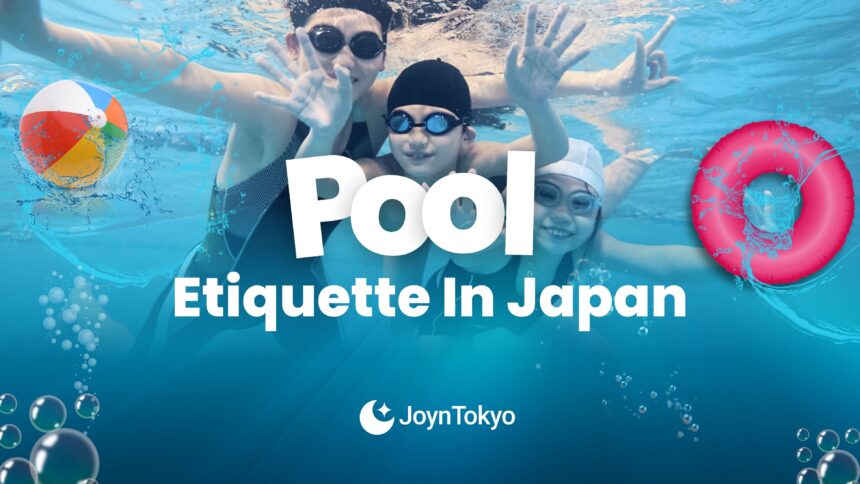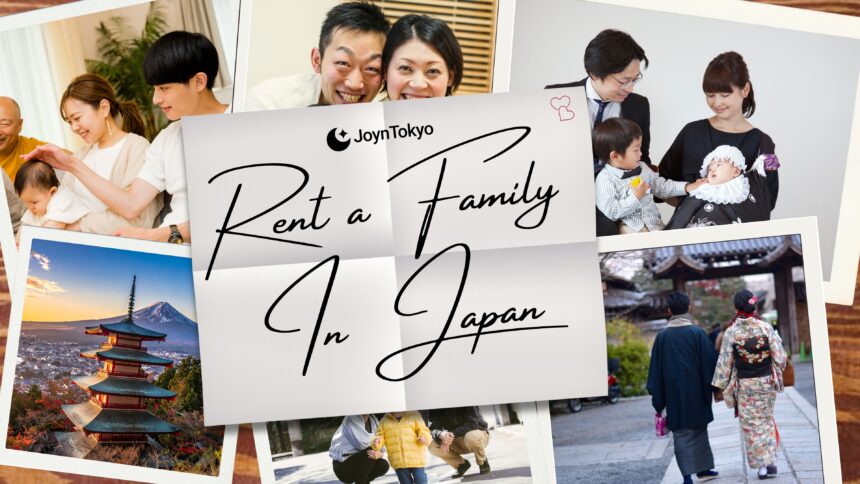Japanese public pools emphasize harmony, hygiene and safety, meaning visitors must often follow more rules than are common in other countries. Understanding those expectations before you arrive can prevent awkwardness, fines — or even refusal of entry.
Core themes include conservative dress, cleanliness, and consideration for fellow swimmers. Leave floats and gadgets at home, cover tattoos and carry cash for lockers and towel rental. Let us advise you on issues that apply to from major pool operators to small neighborhood swimming holes, ensuring you can swim with confidence from Hokkaido to Okinawa.
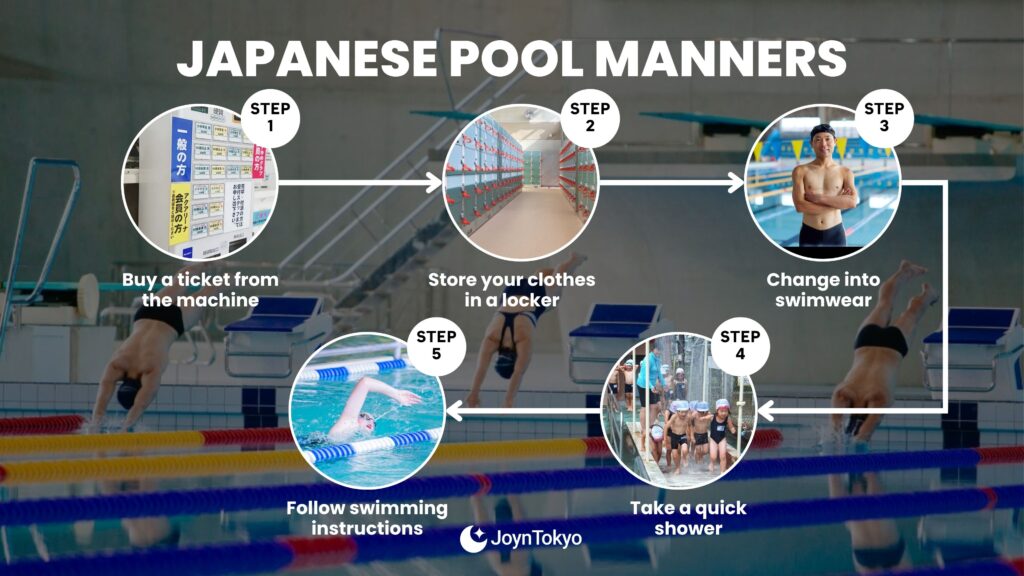
What to Pack
- Photo ID
- Cash or IC card for entry and lockers
- Swim cap
- Conservative swimsuit or shorts
- Waterproof tattoo covers or long sleeve rash guard
- Travel size body soap if required
- Small bottle of water
- Light tote that fits inside a forty centimeter locker
7 Rules and Etiquettes in a Japanese Pool
Read the pool website or call ahead. Some municipal pools accept only local residents, or require a short health form. Most open around 09:00 and close between 21:00 and 22:00, charging about two to six hundred yen for a two hour block. Bring cash or an IC card for ticket machines and locker keys. Many facilities ask for proof of age or address, so carry photo ID. Tattoos that cannot be fully covered may see you turned away at the door.
1. Choose Conservative Swimwear
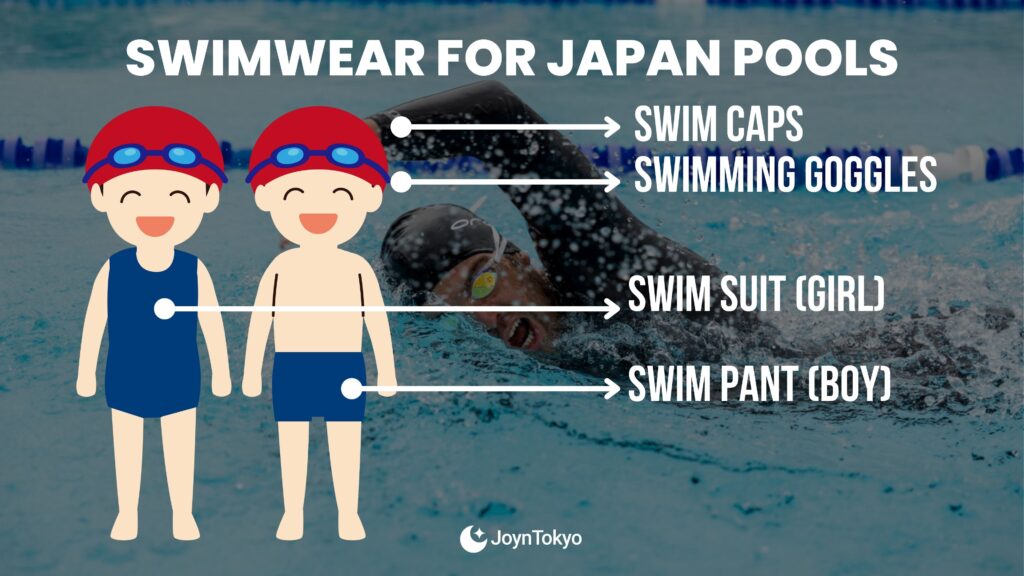
Women usually wear one piece suits or long sleeve rash guards paired with swim shorts: bikinis are rare. Men favor fitted trunks, jammers or swim shorts and often add a rash guard when swimming outdoors. Jewellery and visible piercings, apart from simple earrings, are often asked to be removed.
2. Always Wear a Swim Cap
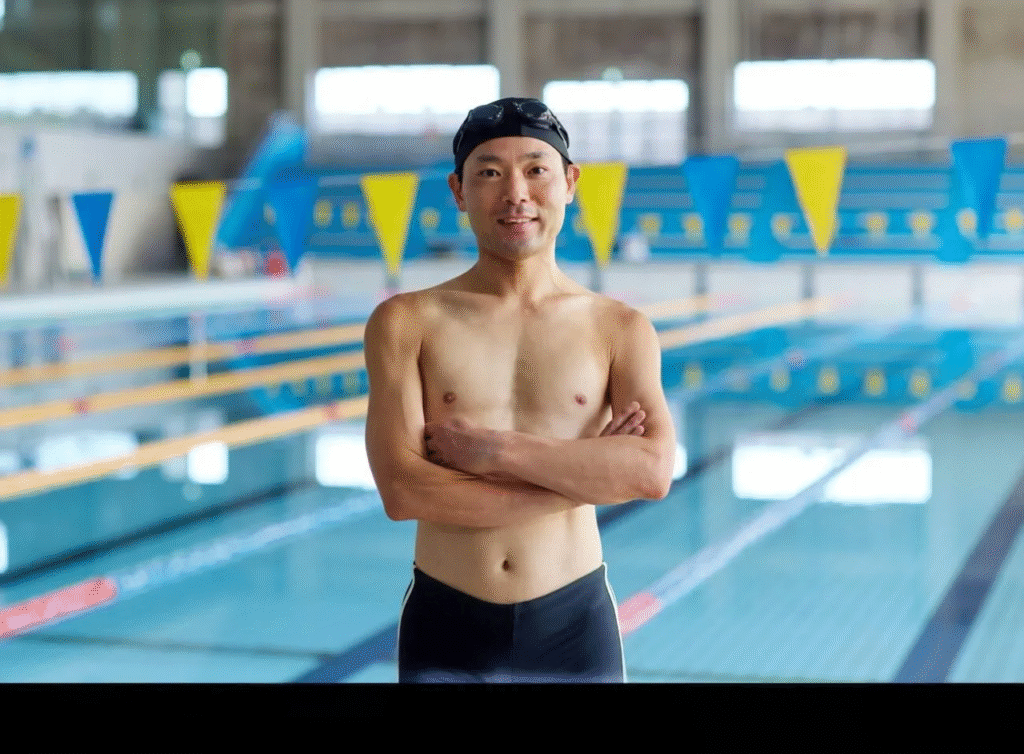
A snug silicone or cloth cap is compulsory from the moment you enter the pool area, not only in the water. Guards will remind you to put it on after showering or when you are walking around the pool. If you forget, most pools sell caps at reception.
3. Shower Thoroughly Every Time

Everyone must soap up and rinse before entering. Conditioner, sunscreen and heavy lotions are usually banned because they cloud the filters. Many outdoor pools police reapplying sun cream, so if you need protection, use a long sleeve rash guard instead. After swimming, rinse off quickly to keep queues moving.
4. Respect Locker Room Customs

Leave outdoor shoes at the entrance and walk in bare feet or the slippers provided into the locker room. Speak quietly, towel dry before returning to your locker, and wipe down the sinks after using a hair dryer, to wash away any strays that may have fallen: this is still the done thing even if you are, by choice or by nature, without hair. Keep changing cubicles clean and do not leave bags on benches.
5. Keep the Deck Clear and Quiet
Cameras, phones and music players are forbidden. Place flip flops, bottles and lap counters neatly against the side wall, never at lane ends where they block turns. Talking on deck should stay low and brief so that whistles and safety calls are audible.
6. Follow Lane Traffic Instructions
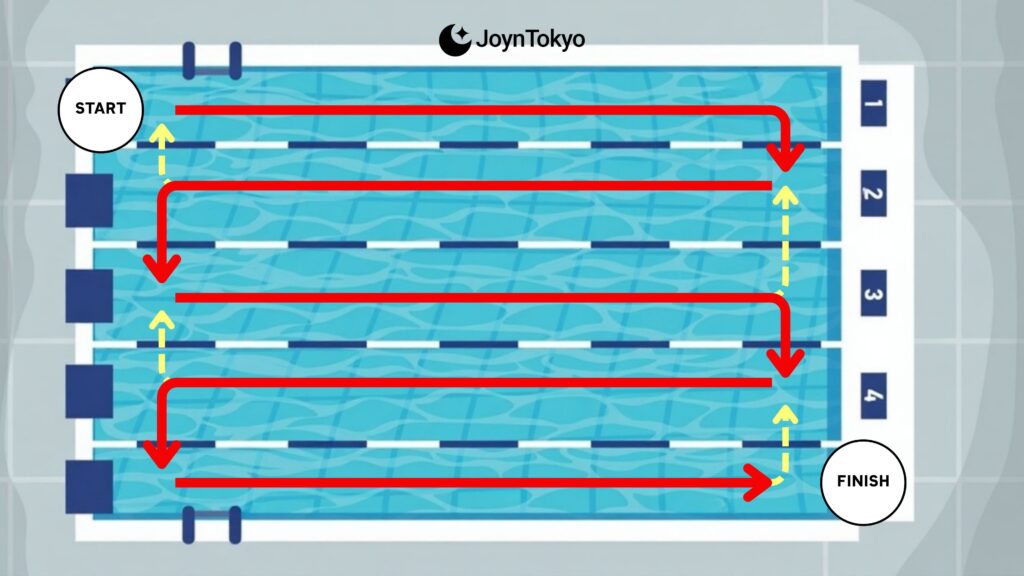
Lanes will be clearly labelled fast, steady, or walking pace. Some pools divide lanes lengthwise so swimmers move clockwise in one half and return in the other, others insist on circle swimming within a single lane. In many smaller pools only two large lanes exist, one for serious continuous laps and one for casual play. Watch the arrows or ask staff before you push off.
7. Leave Gadgets, Floats and Fins at Home
Japanese pools focus on exercise, so accessories such as toys, large floats, dinghies, lilos, fins and snorkels are usually prohibited. Visible electronics including smart watches and fitness trackers must stay in lockers. The only common exceptions are kickboards and pull buoys provided by the pool.
Start Your Own Japan Journey With Expert Guidance
Most people never make it to Japan because the start is confusing and tiring. Wrong visa route. Underestimated budget. Months lost to confusion.
Get personalized support for your new life in Japan.
Book Your FREE Consultation✓ 500+ Bookings ✓ English-speaking Relocation Support Experts
Renting Towels and Other On Site Services
Many public pools rent towels for a small fee, and prefer that you do not bring your own to reduce laundry clutter. Shampoo and body wash dispensers are often provided beside the showers, though some venues ask swimmers to supply their own. Vending machines sell drinks and replacement goggles, if you need them.
Handy Japanese Phrases
| Japanese | Romaji | English |
|---|---|---|
| キャップをかぶらないといけませんか? | Kyappu o kaburanaito ikemasen ka? | Do I need to wear a swim cap? |
| タトゥーは見えません、大丈夫ですか? | Tatū wa miemasen, daijōbudesuka? | My tattoos are covered, is that acceptable? |
| どのレーンが速い泳ぎ用ですか? | Dono rēn ga hayai oyogi-yōdesu ka? | Which lane is for fast swimming? |
| シャワーはどこですか? | Shawa- wa doko desu ka? | Where are the showers? |
Common Mistakes to Avoid at a Japanese Pool

– Entering the water without rinsing
– Swimming against the lane arrows
– Wearing earbuds or smart watches
– Applying sunscreen pool side
Why Japanese Pools Value Etiquette
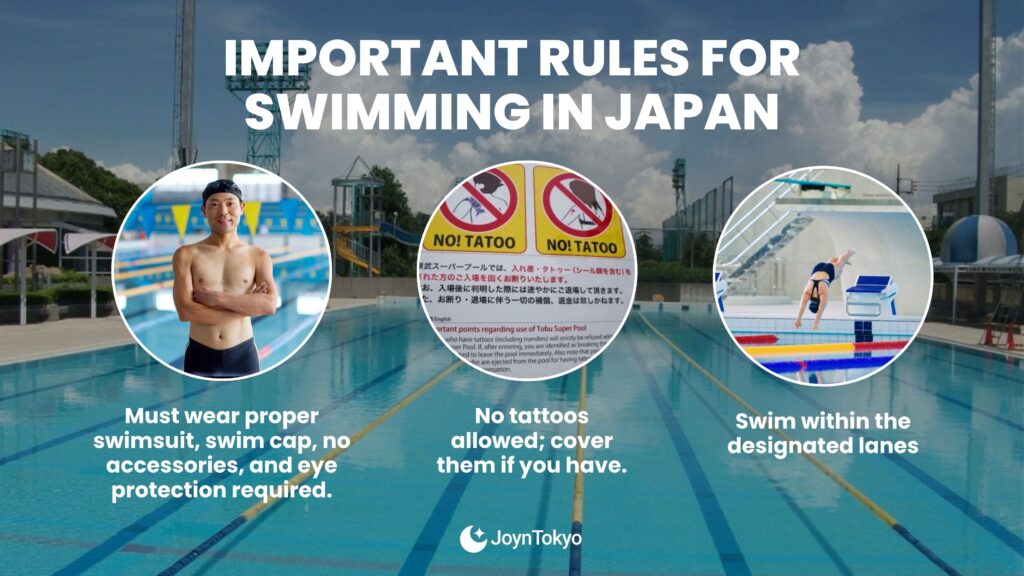
Typical pool managers see their facilities as shared athletic spaces, not play spaces. That means they will enforce clear rules keep water quality high, lanes flowing smoothly, and have lifeguards focused on helping in the event of emergencies. Understanding the rules and respecting the lifeguards demonstrates appreciation for local swimmers and allows you to blend in quickly.
Japanese pools, like many aspects of life here, require a little more preparation than you kay be used to. But if you arrive early, observe the rhythm, and match it stroke for stroke, you will enjoy calm, congestion free laps. And above all: no cannonballs!
Check out this article to learn about the best swimming pools in Japan!


